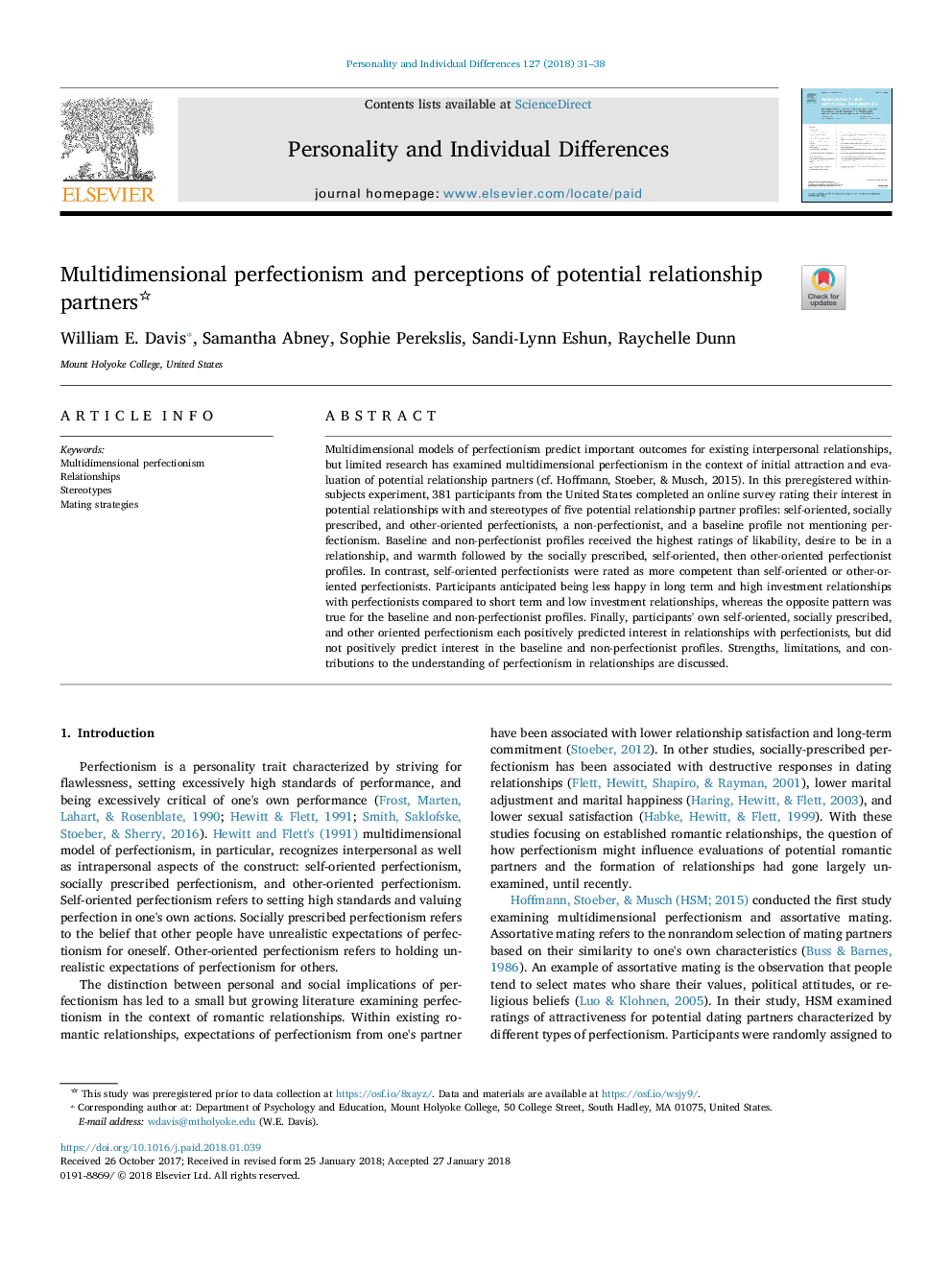ترجمه فارسی عنوان مقاله
کمال گرایی چند بعدی و ادراک از شرکای بالقوه رابطه
عنوان انگلیسی
Multidimensional perfectionism and perceptions of potential relationship partners
| کد مقاله | سال انتشار | تعداد صفحات مقاله انگلیسی |
|---|---|---|
| 120691 | 2018 | 8 صفحه PDF |
منبع

Publisher : Elsevier - Science Direct (الزویر - ساینس دایرکت)
Journal : Personality and Individual Differences, Volume 127, 1 June 2018, Pages 31-38
ترجمه کلمات کلیدی
کمال گرایی چند بعدی، روابط، کلیشه ها، استراتژیهای جفتگیری،
کلمات کلیدی انگلیسی
Multidimensional perfectionism; Relationships; Stereotypes; Mating strategies;

